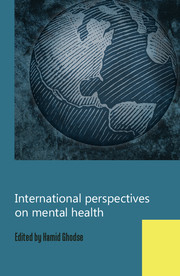Book contents
- Frontmatter
- Contents
- List of contributors
- Preface
- Africa
- Asia
- Afghanistan
- Armenia
- Azerbaijan
- Bahrain
- Bangladesh
- Brunei Darussalam
- Cambodia
- Hong Kong
- India
- Iran
- Iraq
- Israel
- Japan
- Jordan
- Kuwait
- Laos
- Lebanon
- Malaysia
- Mongolia
- Nepal
- Sultanate of Oman
- Pakistan
- The Philippines
- Qatar
- Singapore
- South Korea
- Sri Lanka
- Syrian Arab Republic
- Tajikistan
- Thailand
- Timor-Leste
- Turkey
- United Arab Emirates
- Yemen
- Australasia
- Europe
- North America
- South America
- Index
Qatar
from Asia
Published online by Cambridge University Press: 02 January 2018
- Frontmatter
- Contents
- List of contributors
- Preface
- Africa
- Asia
- Afghanistan
- Armenia
- Azerbaijan
- Bahrain
- Bangladesh
- Brunei Darussalam
- Cambodia
- Hong Kong
- India
- Iran
- Iraq
- Israel
- Japan
- Jordan
- Kuwait
- Laos
- Lebanon
- Malaysia
- Mongolia
- Nepal
- Sultanate of Oman
- Pakistan
- The Philippines
- Qatar
- Singapore
- South Korea
- Sri Lanka
- Syrian Arab Republic
- Tajikistan
- Thailand
- Timor-Leste
- Turkey
- United Arab Emirates
- Yemen
- Australasia
- Europe
- North America
- South America
- Index
Summary
The State of Qatar is a peninsula overlooking the Arabian Gulf, with an area of 11 400 km2. The Al Thani family has ruled the country since the mid-1800s. The population of just over 860 000 is of a multi-ethnic nature, and predominantly resides in the capital, Doha. Only about 20% of the population is Qatari. Around 73% of the population are between the ages of 15 and 64 years. Life expectancy at birth is 74.8 years for males and 73.8 years for females. The literacy rate is 94.9% for men and 82.3% for women. Arabic is the official language and English is a common second language. The economy is dominated by oil and natural gas, and the country has one of the highest per capita incomes in the world. The per capita government expenditure on health is $574 (international dollars), which is among the highest in the region.
Historical background
In the Arab world, and Qatar is no exception, the belief in possession by a spirit (jinn), the evil eye and sorcery or witchcraft as the cause of mental disorders was quite strong. The notion continued from pre-Islamic into Islamic periods. These beliefs, and a lack of proper psychiatric care, constituted fertile ground for native and traditional healers (Motawwa) to dominate the scene and become the sole source of care for those who were suffering from emotional and behavioural problems.
The first general hospital (Doha Hospital) in Qatar was built in 1948 and it accepted psychiatric patients. In 1956, another general hospital (Rumailah) was built and there general practitioners looked after psychiatric patients. Before their management in Doha Hospital, people with a psychosis used to be restrained at home or in prison, according to their family's status and resources. Some of them were sent abroad for treatment, especially to Egypt or Lebanon.
Modern psychiatric services were established in 1971, shortly after the country's independence. They were based at Rumailah Hospital. In 1994 the department moved to its current position, at the old Women's Hospital, which is a separate building away from the general hospital that has been specially adapted for the purpose.
- Type
- Chapter
- Information
- International Perspectives on Mental Health , pp. 184 - 187Publisher: Royal College of PsychiatristsPrint publication year: 2011



